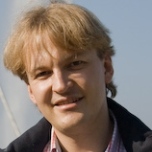|
Bertrand Bellenot |
CERN |
|
|
Primary
working in Aluminum industry as process engineer, developing
software for data acquisition, data analysis, statistical process
control (SPC) and for X-Ray spectrometry. Involved in ROOT
development since 2001 by porting ROOT to Windows. Member of
the ROOT development team at CERN since 2005, actually working on
GUI (Graphical User Interface), Windows support, integration of ROOT
in other toolkits (i.e. MFC, Qt, Fox, PVSS)
and Proof (Parallel Root Facility). |
| Predrag Buncic |
CERN |
|
|
Following the studies at Zagreb and Belgrade Universities, Predrag Buncic stated his carrier as a physicist in NA35 experiment at CERN where he worked on a streamer chamber event reconstruction and where he quickly discovered his passion for scientific computing. In 1994 he joined the NA49 experiment to work on challenging problems of data management as well as reconstruction, visualization and data processing. In 2001 he moved to ALICE experiment at LHC where he initiated AliEn project, a lightweight grid framework that later served as an inspiration for the first gLite prototype. For this reason he joined EGEE project in 2004 and worked for two years in CERN/IT on gLite middleware architecture . Since 2006 he is working in CERN/PH Department and currently leading Virtualization R&D project in PH/SFT group. |
| François Flückiger |
CERN |
|
|
François Flückiger, Director of the CERN School of Computing, is Technology Liaison Officer for Information Technologies at CERN and Manager of the CERN openlab for DataGrid applications. Before joining CERN in 1978, he was employed for five years by SESA in Paris. At CERN, he has been in charge of external networking for more than 12 years and held positions in infrastructure and application networking, including the management of CERN's World-Wide Web team after the departure of the Web inventor Tim Berners-Lee. He is an adviser to the European Commission, a member of the Internet Society Advisory Council and the author of the reference textbook "Understanding Networked Multimedia" as well as more than 80 articles. He has 33 years of experience in networking and information technologies. François Flückiger graduated from the Ecole Supérieure d'Electricité in 1973 and holds an MBA from the Enterprise Administration Institute in Paris in 1977. |
| Rudi Frühwirth |
HEPHY Vienna |
|
Rudi Frühwirth studied mathematics in Vienna. In 1977 he joined the Institute of High Energy Physics in Vienna, where has been working ever since. He has developed online software, simulation software, pattern recognition software, and track and vertex reconstruction software for various experiments. He has taught mathematics and statistics at the University of Economics and regularly gives courses on data analysis at the University of Technology in Vienna. |
| Aatos Heikkinen |
Eniram Ltd. Helsinki |
|
|
Aatos Heikkinen is a computational physics graduate from the University of Helsinki. Since 1998 he was a member of the Geant4 collaboration, where he specialized to modeling of intra-nuclear cascades, and acted as a Geant4 Hadronic physics group coordinator. Furthermore, he was a member of the Compact Muon Solenoid collaboration, where he developed software for detector simulation and techniques for multivariate data analysis. In 2010, he started as a software production manager in a Finnish Maritime Company: Eniram Ltd. |
| Bob Jacobsen |
University of California at Berkeley |
|
|
Bob Jacobsen is an experimental high-energy physicist and a faculty member at the University of California, Berkeley. He's a member of the BaBar collaboration, where he lead the effort to create the reconstruction software and the offline system. He has previously been a member of the ALEPH (LEP) and MarkII (SLC) collaborations. His original academic training was in computer engineering, and he worked in the computing industry before becoming a physicist. |
|
Sverre Jarp |
CERN |
|
|
Sverre Jarp is active in the CERN openlab, a joint collaboration with
leading industrial partners in order to assess cutting-edge information
technology for the Large Hadron Collider’s Computing Grid. |
| Sebastian Lopienski |
CERN |
|
|
Sebastian Lopienski is CERN’s deputy Computer Security Officer, working
on security strategy, policies and consultancy; developing and maintaining
security tools (intrusion detection, vulnerability assessment etc.);
training and awareness raising; as well as incident analysis and response.
During his work at CERN since 2001, Sebastian has had various assignments,
including designing and developing software to manage and support services
hosted in the CERN Computer Centre, providing Central CVS Service for
software projects at CERN, and development of applications for accelerator
controls in Java. He graduated from the Computer Science Faculty of Warsaw
University (Master's thesis on Distributed Computing in Java), and he is
pursuing an MBA in Information Security degree. His professional interests
include software and network security, distributed systems, and human
aspects of information security. |
| Pere Mato Vila |
CERN |
|
|
Pere Mato studied physics at University of Barcelona, Spain, where he obtained the Ph.D. in 1990. Since 1986 has been working at CERN in a number of projects. Started with the 3081/E emulator project at the DD division, and later moved to the Aleph experiment in the area of DAQ and slow controls. In 1994 he took the overall responsibility of the Aleph TPC detector until the end of LEP. Since 1998 he has been leading the development of the core software and framework for the LHCb experiment (Gaudi) and later the LCG Core Libraries and Services project (SEAL). In 2005 has been appointed Applications Area manager of the LCG project. |
|
Axel Naumann |
CERN |
|
|
Starting off as a physicist, Axel studied physics and math at Muenster, Germany. In 2000, he got a PhD position for high energy physics at Nijmegen, The Netherlands. They sent him to Fermilab at Chicago, where he worked with the D0 experiment - which also meant writing software from PCI drivers to data analysis code. During that time he got involved with ROOT, slowly converting from a user to a developer. He contributed to whatever he needed, e.g. the statistics part, the documentation engine, and porting it to cygwin. After a position with the Fermilab Computing Division in 2005 he ended up at CERN in the ROOT development team. He is now responsible for the reflection system, the interpreter CINT, and the documentation system. |
|
Andrzej Nowak |
CERN |
|
Andrzej Nowak has been working at CERN openlab, a partnership between CERN and the industry (Intel, HP, Oracle), since 2007. His early research concerned operating systems security, mobile systems security, and wireless technologies. During his studies in 2005 and 2006, Andrzej worked at Intel, where he researched custom performance optimizations of the Linux kernel and took part in developing one of the first 802.16e (WiMax Mobile) wireless MAN networking standard implementations. Soon after obtaining his diploma, he joined openlab in January 2007. Andrzej deals mostly with multi- and many-core architectures and parallel processing. Another significant area of his work is platform optimization and performance assessment. |
| Alberto Pace |
CERN |
|
|
Alberto Pace is a member if the IT department at CERN where he
leads the Data Management group ensuring a coherent development process for
Physics Data management activities, strongly driven by operational and user
needs. He has more than 20 years experience in computing services,
infrastructure, software engineering, accelerator control and accelerator
operation. He graduated in Electronic Engineering from Politecnico di Milano
(Italy) in 1987. |
|
Bernd Panzer-Steindel |
CERN |
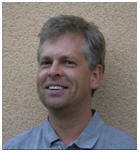 |
Dr. Bernd Panzer-Steindel studied physics at the University of Mainz
(Germany), where he obtained his Ph.D. in 1989. Since 1990 he is an
employee of the European high energy physics research centre CERN in
Geneva. After research activities in various physics experiments he
changed in the nineties into the area of informatics, where he was
decisively involved in the introduction of PC clusters, Linux, new
storage strategies and the management of large storage scaling
tests. Since 2006 he is the CTO and resource manager in the CERN
computer centre. |
| Ivica Puljak |
University of Split - Croatia |
|
|
Ivica Puljak is Professor of physics at University of Split, Faculty
of Electrical Engineering, Mechanical Enginnering and Naval
Arhitecture (FESB). He completed his BsC studies in electrical
engineering at FESB and MsC studies in particle physics at
University of Zagreb. He has been working for his PhD thesis at
Laboratory Leprince Ringuet (LLR) at Ecole Polytechnique, Palaiseau,
and got his PhD in particle physics from University Paris VI in
2000. In 2011/2012 he was research associate at CERN. He is a member
of CMS collaboration since 1994 and MAGIC collaboration since 2009.
His research interests are construction of the electromagnetic
calorimeter of the CMS detector, search for the Higgs boson and
astroparticle physics.
|
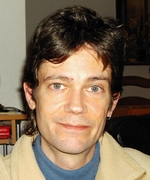
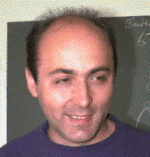
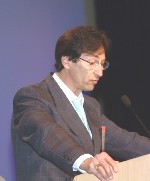


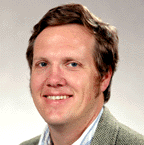

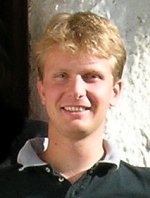
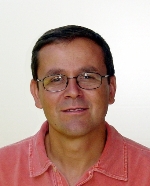

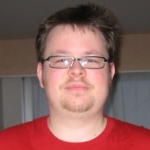
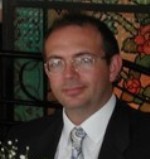
%20(2).jpg)
